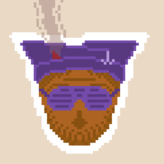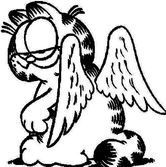On 2/9/2019 at 10:54 AM, frob said:
I have no interest in hunting up 25 quality pelts, but if I happen to come across that many pelts doing other tasks, I may not consider it a grind. For a well-designed game players will collect all the resources they need plus many extras by following along the main path.
I heartily disagree, as with this method you eliminate the need for the player to think for himself because you provide everything he needs on his way to the main goal. You want the player to use his wits and knowledge of the game and seek out what he wants to gather. And secondly, it's also a form of player choice. Should I get X or Y? And how much should I get? Third, the activity itself loses its identity since it just becomes part of the conglomerate of the main path.
On 2/8/2019 at 8:35 AM, suliman said:
Hi
Im designing several open-world games. Generally you are free to roam and do different things. You collect items or gain abilities or resources and can push further into the world or attempt harder tasks.
How to avoid that the game feels grindy or repetative? I rely on procedurally generated worlds mostly.
As an example: I work on a reimagening of "lost dutchman mine". You play a miner in the wild west. You search for deposits, mine valuables, sell them in towns and buy equipment and supplies to keep finding better mines or travel to harder areas with more dangers (and payoff). But it already feels slightly grindy... Is this a consequence of wanting stuff to be "realistic"? Like you need to gain money to buy food and things to keep going, at the same time the money is also what you need to progress etc.
If you have a linear set of "levels" such as in super mario it would be easier I think: each designed challenge needs to be completed and then the game gives you another challenge. But in an sort of open world, how can I handle this better?
I can't know if its the realism that makes it feel grindy, but anyone can tell you that some realism kills fun factor. What I can tell you is if it does feel grindy, its because the activity (or activies) is no longer producing a positive experience. You need to add meaning to the activity or clean up the activity itself so that it flows pleasantly. You can add meaning in several ways. Make the player feel like he's partaking in a cool, interesting activity. That's the role playing aspect of the activity; make the context interesting and engaging. Another way to add meaning to the activity is to tweak the rewards of the activity, which is the bigger context, such as the gains in stats, the material rewards, the progression towards completing the game, and any other type of progression. I may be missing some forms of meaning, but this is just what I can think of atm. The point is that if the player is enjoying the activity, it won't feel like a grind because he won't be thinking about it as work, but as play. The other thing I mentioned was cleaning up the activity so that its a pleasant activity without hick ups, annoyances, or tedious snags that bring down the level of enjoyment, which leads to the feeling of grind.
So grind isn't just repetition. It's work without play, which is found in repetition, yes, but repetition can be enjoyable and not feel like a grind.
Finally, you mentioned the open world, nonlinear progression as possibly a problem making the game into a grind, but its not clear to me how so and you'd need to elaborate. My only guess is you're afraid you're overwhelming the player with too many activities and giving him a lack of a feeling of completion? I don't know what you're asking.










